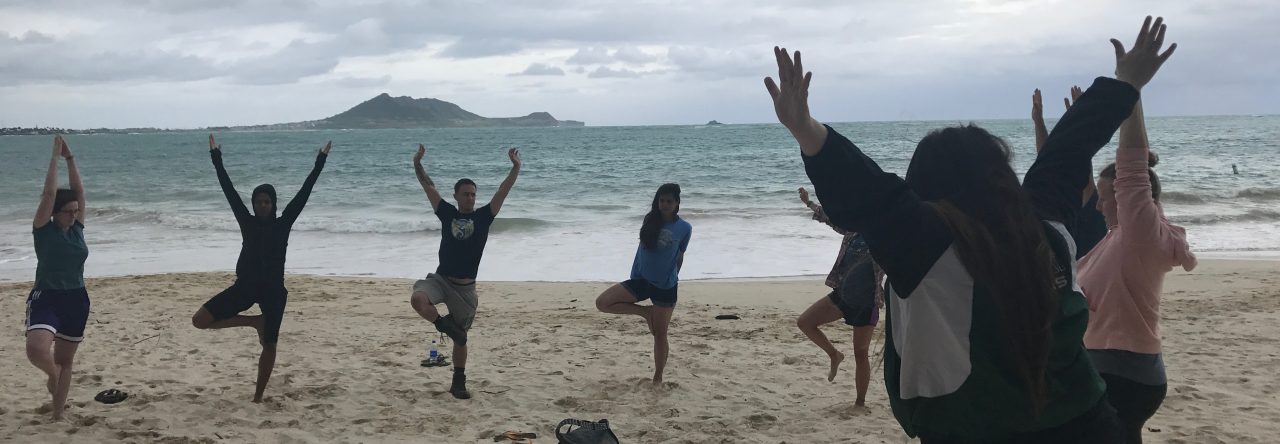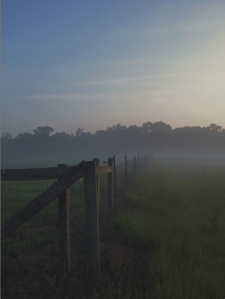Greetings Eco-Stewards Community,
We are still accepting applications from young adults (age 20-30) for Eco-Stewards Richmond: Water is Life– Journeying Toward Justice on the James River . Please continue to spread the word! Our second application deadline is April 15, and we are looking for more young adults to enjoy this time of community building, vocational discernment, place-based learning, eco-faith discovery, spiritual reflection and outdoor recreation! We’ve lined up an excellent team to lead this exciting adventure from June 5-10, 2017. Read their bios below.
. Please continue to spread the word! Our second application deadline is April 15, and we are looking for more young adults to enjoy this time of community building, vocational discernment, place-based learning, eco-faith discovery, spiritual reflection and outdoor recreation! We’ve lined up an excellent team to lead this exciting adventure from June 5-10, 2017. Read their bios below.
Meet the Eco-Stewards Richmond Program Leaders
Rev. Rob Mark serves as a Presbyterian pastor at Church of the Covenant in downtown Boston, and has coordinated the Eco-Stewards Program since its inception in 2006, leading programs in California, New Jersey, West Virginia, Massachusetts, Vermont, Oregon, Florida and Washington. In November 2016, he responded to a call from indigenous leaders to join 500 clergy from around the country in a historic witness of solidarity at Standing Rock. Rob is passionate about grassroots programs like the Eco-Stewards Program that affect lasting change. He also likes coffee, ultimate Frisbee, stringed instruments and the joy of stewarding his 3-year-old son Rowen who is named after a Scottish tree.
Kathleen Murphy is from the great city of Richmond, Virginia where she works for the Center for Healthy Communities at Virginia Poverty Law Center. She currently attends Second Presbyterian Church and has become active with their young adult group. When she’s not working she loves to cook, garden, spend time outside, and go to various festivals and events around Richmond. She is an alum of the Eco-Stewards Seattle Program and the Boston Food Justice YAV Program.
Alex Haney is a graduate of James Madison University and has taught all kinds of nature-related things at camps in Virginia, Massachusetts, Arkansas, and Tennessee. He loves being able to call the Appalachian region his home for its rich culture and history. He currently works as a solar panel installer with a construction company in Central Virginia and describes himself a rookie guitar player who gets excited about wild edible and medicinal plants. He is an alum of the Eco-Stewards Seattle Program and the Boston Food Justice YAV Program.
Colleen Earp is serves the Presbytery of The James as the Director of Youth, Environment, and Service Ministries at Camp Hanover, and is an M.Div. student at Union Presbyterian Seminary. She is a geographer with interests in natural resource conservation and education. Colleen lives in Richmond, VA with her spouse and two cats, but will always love her home state, New Jersey, more than anyone else in the world possibly could. She is an alum of Eco-Stewards Gainesville and of the YAV Program in New Orleans.
Vickie Machado is a third generation South Floridian. While pursuing her masters, she lived and worked at the Gainesville Catholic Worker house and later helped to host the EcoStewards Gainesville trip. Upon graduation, she worked as a an environmental organizer, pushing for a ban on fracking. She is currently a graduate student at the University of Florida, studying Religion & Nature. Vickie is still passionate about water issues and loves being in the ocean. She is an alum of the Eco-Stewards Montana, Boston/Vermont and Portland programs and served as a program leader for Eco-Steward Seattle.
Becky W. Evans is a New England Presbyterian with a passion for storytelling. She’s worked as an environmental reporter for The Standard-Times of New Bedford, Mass., a communications writing professor at Boston University, and an ESL instructor for adult immigrants at the Community Learning Center in Cambridge. Currently, she serves as a food justice educator for the Boston Food Justice Young Adult Volunteer Program. She loves her role as storytelling mentor and communications coordinator for The Eco-Stewards Program.


















